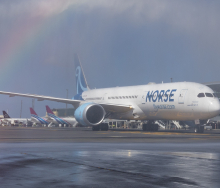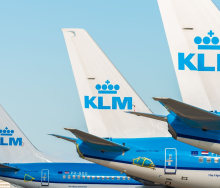Nearly 150 of Travel News’ readers who took part in a recent poll say that they are seeing more demand for group travel across both the leisure (37%) and corporate segments (23%), compared to 40% who don’t anticipate an increase for either.
“There has been a definite return to pre-COVID levels for corporate and incentive groups and event-based travel – maybe even an increase from then,” says Kerith Hulme, Travel Counsellors.
The demand for group travel is one that appears to be on the rise in other parts of the world, too.
The Travel Institute in Massachusetts surveyed its database of travel agents, and 55% of respondents believe they will sell more group travel in 2024, and more than half say it is a “very important” revenue model for their business.
The term ‘group travel’ can be broadly interpreted, however, in its Group Travel Market Analysis report compiled from a global study, MarketWide Research, defines it as “10 or more individuals or who share a common interest, purpose, or destination.” The research house identifies several benefits of group travel, such as social connection, cost savings, convenience, and safety for travellers, while agents can generate more revenue, build better client relationships and grow their network.
Multi-generational groups are on the move
Travelstart, a South African-headquartered OTA, provides specialised services for travel for groups of 10. Its sales team confirms that they are seeing a greater demand for multi-generational group travel, but that these groups are not typically larger than 20 people. However, explains Linda Balme, Commercial Manager at Travelstart, when there are larger groups, these are mostly for religious purposes and handled by specialists.
Hulme has also witnessed more multi-generational group travel.
“On the leisure side, I’ve noticed an increase in multi-generational and celebration group travel – big birthday groups, families from around the world meeting in a central location, and destination weddings.”
Managed travel and travel risk management
Jelena Williams, also from Travel Counsellors, highlights some of the key considerations that need to be factored in when planning each leg of group travel:
- Ensuring that all preferences, dietary requirements, special assistance, and medical needs, especially in the instance of accessibility, are accounted for,
- Designating one person within the group to take charge of travel arrangements to make it easier to plan and manage each travel itinerary,
- Allowing enough time to negotiate rates, take advantage of special deals and secure availability, and most importantly,
- Working with clients to get their travel documentation in order and pay by due dates.
For corporate travel groups, travel risk management is essential. Working with travel managers ensures that duty of care policies are upheld and that should anything go wrong, the issue can be addressed as swiftly as possible.
“The first step is to create a solid travel risk management programme that evaluates all the risks your travellers may face, and ways to mitigate or account for those risks. Corporations working with travel management companies can benefit from their expertise,” says Amadeus on its website. It adds that travel managers should be able to help analyse the current situation, understand business travel requirements, and recommend improvements.
Not the standard
As is the case with many trends, there can be deviations.
As an example, alongside the demand for group travel, solo travel has emerged as a trend, with a growing number of suppliers and tour operators creating single supplement offerings. And, despite more demand from corporate and leisure markets for group travel, Williams says that for her personally, group queries decreased after COVID on both sides.
“The biggest demand I had was from corporate clients for year-end functions, which they now seem to prefer to rather have in smaller groups and locally, based on their local offices during this time,” says Williams.
Group travel may be growing, but like other aspects of post-pandemic travel, it continues to evolve, bringing with it new opportunities.















